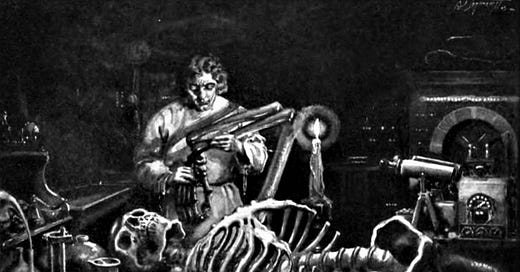1930-1950: The Years of Excess: From the Great Depression to the American High Times
The period between 1930 and 1950 will be a time that echoes the productivity of Science Fiction Silent Film Cinema.
The period between 1930 and 1950 will be a time that echoes the productivity of Science Fiction Silent Film Cinema. Although films have become audible, humanity has plunged into a profound silence. The Great Depression will lead to the collapse of the financial world in America; Nazism will give rise to fascism in Europe, and this will lead to the belief that humanity is on the brink of a second World War. In such a period, science will become the tool of heavy war industry production, while art will be used for the propaganda of states. Based on this, I would like to caution you, dear reader, about the sterile production of science fiction films between 1930 and 1950. In this period, which I will discuss shortly with just eight films, we will experience how this genre, with a limited lifespan, misused its chance. Of course, they are all masterpieces, but war and global crisis will generally render science fiction cinema, as well as cinema and other art forms, ineffective. On the other hand, after the Great War, there is only one truth that the era of second excess will make us all feel: "Art is not for art's sake, but for the state."
To better understand the different social and political processes that occurred during the 20-year period, I would like to draw your attention to how films were shot. In the Soviet Union, Joseph Stalin initiated the "Collectivization of Agriculture" process in 1930, which would cost millions of lives. In the same year, American astronomer Clyde Tombaugh would discover Pluto, recently demoted from planet status to a dwarf planet. In 1932, scientists would split the atom, laying the foundations for the world's most powerful weapon of mass destruction. The year 1933 is when Adolf Hitler, whom I believe to be the real-life "Senator Palpatine/Darth Sidious" from Star Wars, rose to the Chancellorship of Germany. On the same date, Wiley Post would become the first pilot in history to circumnavigate the globe in eight days, fifteen hours, and fifty minutes.
By 1940, the Nazi Movement would enact anti-Jewish Nuremberg Laws, the Spanish Civil War would begin, and Japan would annex Manchuria. On October 30, 1938, during a Halloween special program, American filmmaker Orson Welles would announce a false news story inspired by H.G. Wells' "War of the Worlds" that Martians were invading our planet. Although it is claimed that the news of an alien invasion caused a massive panic, there is still no evidence supporting this today. In the same year, Hitler would annex Austria into the Third Reich, and the character "Superman," one of America's greatest propaganda weapons, would start appearing on comic book shelves. 1939 is the year of war; forty million people would die in the six-year-long Second World War, Europe would be devastated, and the victorious United States would become the "Big Brother" of our world.
After the war, as we move towards the high times of America in the 1950s, international institutions like the United Nations and NATO would be established as part of the New World Order. George Orwell, one of the leading figures of 20th-century English literature, whose real name is "The Last Man in Europe," would publish the novel "1984." The first computer, ENIAC, the microwave oven, and the Polaroid camera would be invented, and the "Big Bang" would be formulated.
All of these historical and socio-cultural phenomena mentioned above are illuminating in terms of the cause-and-effect relationship with the films we will discuss in this section. Our first film, directed by David Butler, is "Just Imagine," dated October 23, 1930, portraying New York City half a century ahead of its time with successful art direction and special effects. The film is a representative of a subgenre that is not often encountered in history. "Just Imagine" is the first work of the Science Fiction Musical Comedy category, and the film's music is composed by Oscar-winning Hugo Wilhelm Friedhofer. Friedhofer, throughout his over 40-year career as a film music composer, would also have the opportunity to work with Max Steiner, the composer of masterpieces like King Kong, Casablanca, and Gone with the Wind.










